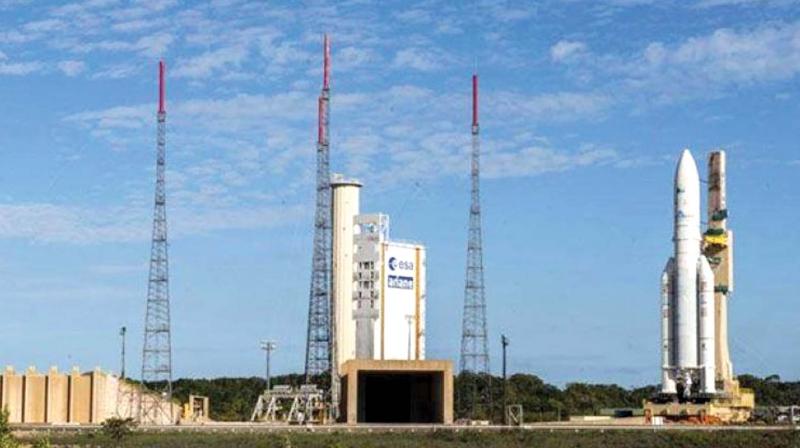Isro ready to launch three astronauts into space orbit

Bengaluru: Hours after Prime Minister Narendra Modi's announcement of an Indian rocketing into space on board a Made-in-India ‘Gaganyaan’ module by 2022, ISRO's Chairman Dr K Sivan said his team would be able to meet all technological challenges involved in this ambitious programme earlier than schedule with inputs provided by experts within his organisation, a host of R&D organisations, the academia, and industry, and generate 15,000 job opportunities as well.
“ISRO is always ready to meet challenges because of its dedicated team. We will be able to show to the world that our country is scientifically and technologically on par with all advanced nations. We are confident that we can do it ever earlier than 2022 (sending an Indian into space) because some of the technologies are ready and so is the launch vehicle, GSLV-III (to carry the crew into space). We will use GSLV-III vehicle, and carry a three-member crew to an orbit about 300-400 km from the earth. The crew will be in space for about seven days in the module weighing about seven tons,” he told the media in Bengaluru on Wednesday.
He explained that the journey of Indian crew into space would be preceded by a couple of critical tests like launching the modules twice without the crew to prove the reliability of complex technologies and systems involved in the mission besides simulating an escape route for the crew in case a snag threatens to curtail the flight in space. ISRO has already carried out some tests, the most recent being an emergency pad abort test (PAT) on July 5 from Sriharikota Range where the crew escape system (CES) was ejected from the rocket minutes after the launch.
A couple of years ago, a dummy crew module was launched and brought back to the Bay of Bengal to demonstrate the capability to launch this module. In addition to these tests, ISRO has developed the crew module, the environmental control system and space suits for the crew.
Dr Sivan said the process of selection of the crew would commence soon with his organisation set to enlist the help of the Indian Air Force (IAF), the Institute of Aerospace Medicine, Bengaluru, and several DRDO laboratories.
“Since we have less time on hand, we will select the crew and send them to facilities abroad for training. Several countries have these crew training centres but we have yet to decide which one to be chosen for training,” he said adding the proposed Astronauts Training Centre on the outskirts of Bengaluru would be established to train the crew for future missions.
He said his organisation would race against time by first submitting a detailed report on the human space flight programme to the Union government while simultaneously working on advanced technologies and fabrication of a host of systems for the mission.
“We will define the experiments to be conducted by the crew (in space) in future,” he added. Interestingly, he estimated that this programme would cost about Rs 10,000 crores though it was estimated at
Rs 14,000 to Rs 15,000 crores in 2004. “We have brought down the cost as we have developed some of the technologies for the mission, and also the number of test flights (with unmanned crew) down to two, as against four planned earlier,” he added.
Dr Sivan said besides being a mission which would enhance national pride and inspire the youth, the technologies developed for this mission could later be used to roll out a new generation of products and systems besides gaining expertise in advanced processes in fields such as mechanical engineering, electronics and instrumentation.
Lalithambiga to head office of human space flight programme
Mrs V R Lalithambika has broken the glass ceiling as ISRO has picked her to head the office of human space flight programme. This soft-spoken specialist in control systems of rockets, will liaise with various organisations for fruition of the programme. “It's very challenging to work in ISRO. We are just starting so I cannot comment much on the human space flight programme,” she said adding “I don't see anything special or different moving as head of this programme office in ISRO headquarters from VSSC (Vikram Sarabhai Space Centre, Thiruvananthapuram). We undertake anything as well as we can,” she told DC

